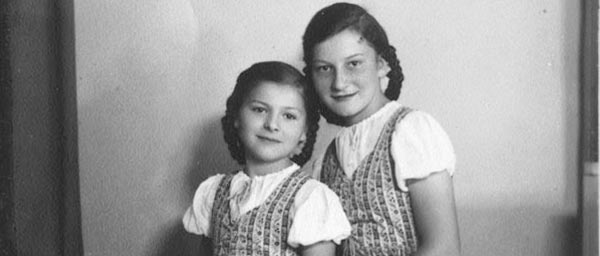Three Promises

Three Promises: A film about the Holocaust in Serbia
On March 18, 1942, a Nazi gas van pulled up in front of the Jewish hospital of Belgrade, and for the first time in Serbia was used on Jewish citizens. This van and others that followed killed everyone within the hospital — patients, nurses, and doctors, all of whom were Jews. The Nazis invaded Yugoslavia in April 1941 and immediately fired all Jewish health care workers. Since it was forbidden for them to practice in the public health care facilities, in May 1941 a Jewish hospital was opened in the building of the Jewish Women’s Society.
The film is being shown in commemoration of the 70th anniversary of the first use of those infamous gas vans in Serbia. The Claims Conference partially funded the film, which was created by Centropa (Central European Center for Research and Documentation), a European organization that has received Claims Conference support for numerous education and documentation projects.
The story is narrated by Matilda and Breda Kalef, sisters who lost their father and grandmother in that hospital seven decades ago. The vans were then used over the next few weeks to asphyxiate about 5,000 Serbian Jewish women and children. More than 90 percent of Serbia’s Jewish community was killed by the Nazis.
Matilda and Breda Kalef were just young girls, sent into hiding on falsified papers, when their handicapped father, Avram Kalef, and his mother, Matilda, were sent to the Jewish hospital in Belgrade in March 1942. With their mother, the girls snuck into the hospital to see their father and grandmother.
“My father’s last words were: ‘Dona, protect my children. Take care of my children,’” Matilda Kalef recalled in a 2005 interview. “This was my guiding principle through life. She fought so hard during the war to somehow keep us well, feed and save us.”
The next day, the girls and their mother watched through curtains of a friend’s home across the street as the gas vans began to pull up to the hospital and patients and staff were placed inside. The Kalefs never saw their father or grandmother again.
Centropa is a Vienna- and Budapest-based research organization that seeks to preserve materials documenting Jewish life in Europe during the 20th century. The film was shown in Belgrade and as part of the New York Sephardic Jewish Film Festival in spring 2012. Watch it online as part of Centropa’s website section for students.
The girls and their mother lived for three months hidden in a Catholic monastery by Slovene priest Father Andrej Tumpej in the town Banovo Brdo. They then moved to an attic space where they spent the remainder of the war years.
After the war Breda became one of Yugoslavia’s most famous opera singers and Matilda a dental technician. Both married and had families, denying the Nazis their Final Solution. The sisters both receive Claims Conference pension payments from the Central and Eastern European Fund.
The sisters also were successful in having Father Tumpej named a Righteous Gentile in 2001 by Yad Vashem for his efforts to save them. Father Tumpej also saved two other Jewish girls and a Jewish doctor.
The title of the film comes from the three promises made to different people in the Kalef family – by Dona to Avram to take care of their daughters, by Father Tumpej to shelter them during the war, and by Breda to honor Father Tumpej for his courage in keeping them safe.
The film preserves a largely unexplored chapter of the Holocaust. The massive scope of the Shoah comprised horrific events that unfolded on a daily basis across communities large and small. The Claims Conference is committed to preserving the memory of each of these events, including how a truck converted into a killing center one day pulled up without notice in front of a Jewish hospital and set into motion the end of a historic community.

